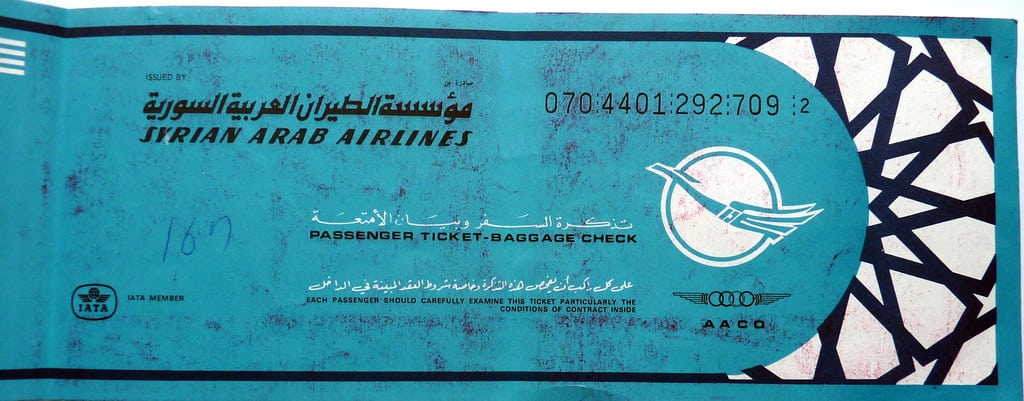The Syrian government's cozy relationship with the world's leading airline ticketing companies

Skift Take
Real corporate responsibility begins when companies go beyond mere "compliance" with regulations against outcast airlines and governments.
Despite the horrors of the Syrian government's attempt to brutally crush the uprising in Syria, global distribution system (GDS) and airline IT providers Travelport, Amadeus, and Sabre provided services to the Assad-goverment controlled Syrian Arab Airlines, even during its ongoing, brutal crackdown.
Travelport, which took in more than $4 million in revenue from Syria in 2011, only suspended Syrian Arab Airlines' GDS participation agreement when the European Union imposed sanctions a few months ago, in the fall of 2012, a Travelport spokesperson says. A Sabre spokesperson says it, too, kicked the airline out of its system, likely around the time of EU sanctions, but would not specify the exact date.
While Travelport has relationships with travel agencies in Syria through a third party, Amadeus in recent years has offered travel agency services through Syrian Arab Airlines, which also made its flight information available in the Amadeus GDS.
An Amadeus spokesperson wouldn't provide much detail about its current relationship with Syrian Arab Airlines, as well as two Iranian airlines, Iran Air and Mahan Air, which have been tied to the Syrian government's repressive practices.
"Amadeus complies with all applicable sanctions rules," the spokesperson says. "These differ from the United States and Europe. Amadeus cannot and does not distribute any of these airlines (Syrian Arab Airlines, Iran Air and Mahan Air) in markets where sanctions have been imposed."
In 2008, Amadeus signed a 10-year distribution agreement with 13 airlines, including the Syrian carrier, all of which are members of the Arab Air Carriers Organization.
The Amadeus spokesperson wouldn't answer questions "for proprietary reasons" about whether the Syrian Arab Airlines distribution agreement, which entails Amadeus marketing to travel agencies in Syria through the airline, is still in place.
"The joint agreement is a framework agreement between Amadeus and 13 AACO member airlines regarding distribution in their home countries (to travel agencies), which was implemented by signing a bilateral agreement(s) between each of the 13 AACO member airlines and Amadeus," Rolad Jawad, AACO's director of IT and facilitation department, told Skift this week.
Meanwhile, Travelport and Sabre continue to have agreements with Tehran flag-carrier Iran Air, an airline that the U.S. government recently concluded has been sending "military and crowd-control equipment to the Syrian regim
